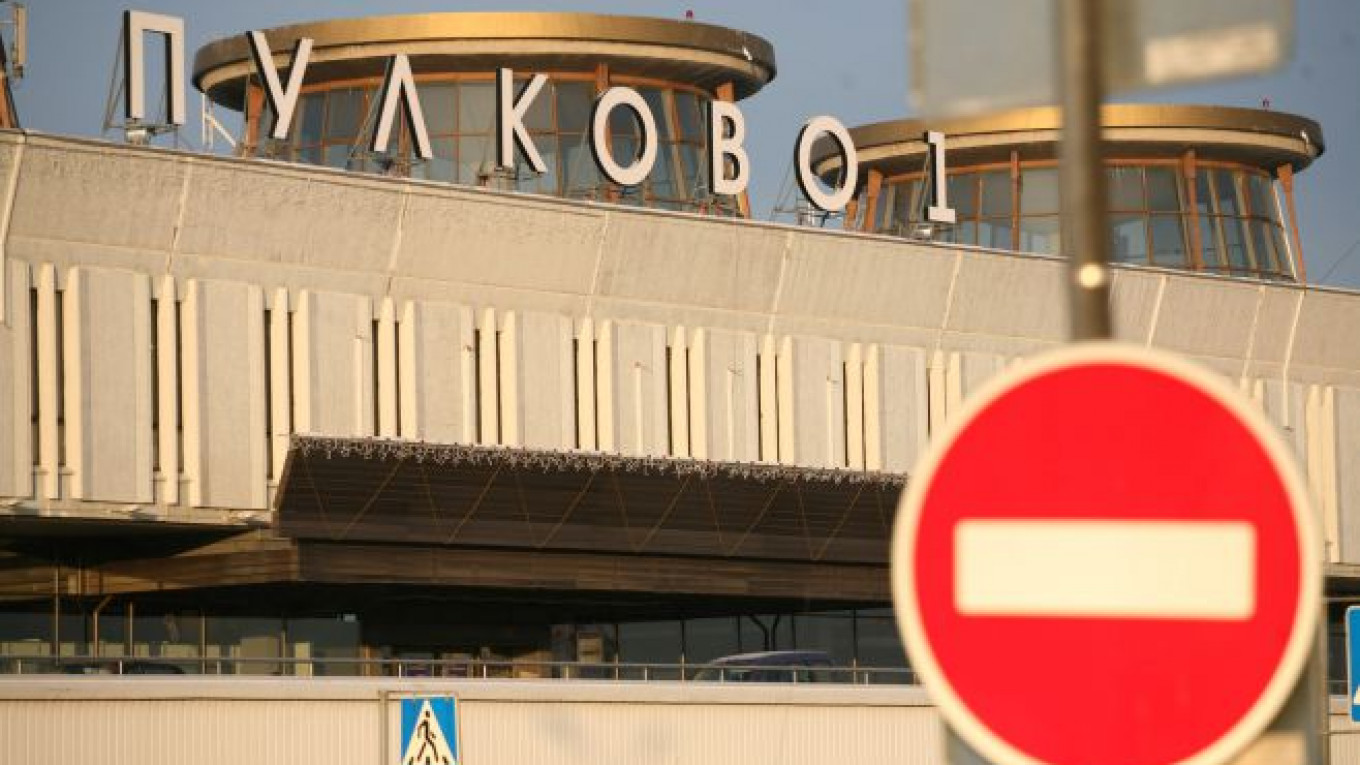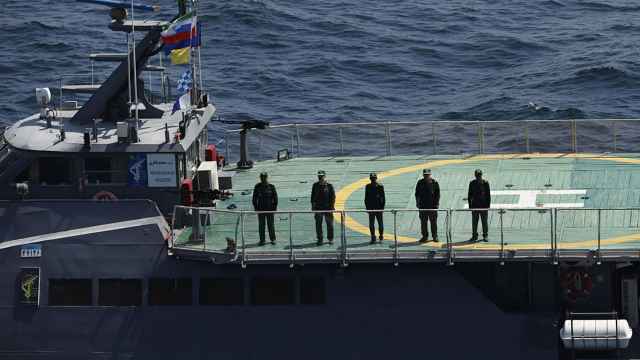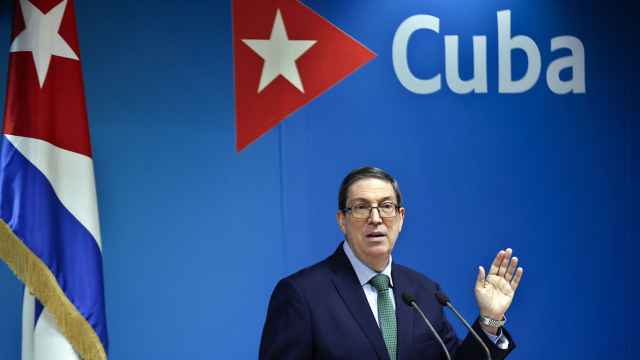Russia's new low-cost airline, Dobrolyot, has delayed the start of flights to St. Petersburg after failing to coax a low enough servicing charge from the city's airport, Pulkovo, a news report said Tuesday.
Dobrolyot, a spinoff of state-owned flagship carrier Aeroflot that launched last month, had planned to begin flights to Russia's northern capital in June, but will now put the route on hold, business daily Kommersant reported, citing sources familiar with the situation. Lowcosters tend to fly out of minor airports for their cheaper servicing charges, but Pulkovo — St. Petersburg's only airport — was not prepared to go low enough, the report said.
"An offer of 800 rubles ($23) per passenger renders the whole budget [airline] project pointless," one source told the paper.
Later on Tuesday, the company that manages Pulkovo Airport told ITAR-Tass that it had made Dobrolyot a special offer on the basis that it was a new carrier, but had not yet received a response. It is not clear what price was offered.
Pulkovo has been reluctant to roll out the red carpet for low-cost airlines before.
In 2011, the Avianova budget airline — a joint venture between Arizona-based investment firm Indigo Partners and A1, part of Mikhail Fridman's Alfa Group — also failed to agree on rates with Pulkovo. The airport said then that lowcosters did not attract new customers, but merely took existing ones from other traditional airlines. Avianova went bankrupt, flying its last flight in October 2011 and leaving Russia once again without a low-cost carrier.
The Moscow-St. Petersburg route is popular: St. Petersburg's Pulkovo said that in the first four months of 2014 it serviced 215,000 passengers traveling between the two cities — a 21.2 percent increase on the same period last year — compared to a total of 200,000 passengers for all other regional routes, Kommersant reported.
Dobrolyot had earmarked Pulkovo as the destination for its maiden flight, but in May Aeroflot general director Vitaly Savelyev said that honor would be given to the Crimean city of Simferopol, recently annexed by Russia from Ukraine to thunderous patriotic applause from Russians. The first flight to Simferopol took off from Moscow last month and routes to Volgograd and Perm start in August.
Andrei Kramarenko, an aviation industry analyst, told the paper that Dobrolyot has little to gain from operating the Moscow-St. Petersburg route, as it only has three planes, one of which is on reserve from Aeroflot, and there is stiff competition on the route between airlines and Russian Railways.
Aeroflot, Rossia, Transaero, UTair, Ural Airlines and S7 all fly between the two cities. A one-way trip to St. Petersburg at the start of August can be bought for as little as 2,274 rubles ($66), compared to 2,790 rubles ($81) with UTair, prices that Dobrolyot may find hard to significantly undercut.
Russian Railways, meanwhile, offers one-way tickets for the beginning of next month aboard its high-speed Sapsan service to St. Petersburg, which has a journey time of about four hours, for 2,844 ($83). Sapsan will increase its carrying capacity on Aug. 1, when it launches its new twin train service, a trick that involves two of its normal trains being joined together end to end.
Contact the author at [email protected]
A Message from The Moscow Times:
Dear readers,
We are facing unprecedented challenges. Russia's Prosecutor General's Office has designated The Moscow Times as an "undesirable" organization, criminalizing our work and putting our staff at risk of prosecution. This follows our earlier unjust labeling as a "foreign agent."
These actions are direct attempts to silence independent journalism in Russia. The authorities claim our work "discredits the decisions of the Russian leadership." We see things differently: we strive to provide accurate, unbiased reporting on Russia.
We, the journalists of The Moscow Times, refuse to be silenced. But to continue our work, we need your help.
Your support, no matter how small, makes a world of difference. If you can, please support us monthly starting from just $2. It's quick to set up, and every contribution makes a significant impact.
By supporting The Moscow Times, you're defending open, independent journalism in the face of repression. Thank you for standing with us.
Remind me later.






